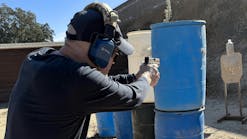Every law enforcement officer knows what to say, in their own way, when advising a suspect of their rights. We thoroughly examined the historic case of Miranda v. Arizona either as an academy cadet, college student or both. We know that suspects are often quick to tell us "...I know, I know, I have the right to remain silent." When it comes to the warning itself, cops do not necessarily like to give it, prosecutors attempt to undermine it, defense attorneys try to uphold it in every situation even when it does not apply and the courts overturn it. To say the least, it was a highly controversial ruling back then and continues to be so today.
Working the street it never ceased to amaze me when I saw cops, some inexperienced, others competent and intelligent, and still a few veterans who really did not know when Miranda should be applied and when it shouldn't. Even fewer than that knew when to disregard it completely. Do you recall the exceptions? The categories are:
As we can see, the necessity of Miranda is not as concrete as we think and due to a multitude of factors the core elements of the warning and it's stipulated use remain in a state of flux. More changes are on the horizon.
Terror Suspects
On Sunday, 5/9/2010, U.S. Attorney General Eric Holder was a guest on the NBC show Meet the Press. While doing his best to resist a period of grueling questioning by the host, David Gregory, Holder apparently slipped and released "big news." Holder went on to say that when it comes to law enforcement having to apply Miranda during rapidly evolving terrorism investigation, "We certainly need more flexibility and we want the public safety exception to be consistent with the pubic safety concerns we have in the 21st Century..." Holder continued by saying that the Obama Administration, through the U.S. Department of Justice, would work with Congress to "come up with a way" in which the public safety exception to Miranda accounts for the threats the U.S. currently faces from terrorism.In my view, Holder is right; I couldn't agree with him more. The fact is the current public exceptions existing to Miranda do not account for a terrorism event. They were instituted concerning traditional crimes from ordinary criminals, not international terrorists conspiring to unleash a Weapon of Mass Destruction in some major city killing tens of thousands. Police officers today have to contend with criminal acts that transcend the boundaries of nations, in some cases involving a foreign government, and are so complicated that they take years to investigate on multiple continents. The rules of the game need to change.
Unintended Consequences
Although I believe in an expansion of the public safety exception, I cringe when thinking about it too. Do you believe that over-zealous prosecution exists? If you don't then that tells me you have never been a target of it. Each one of us has personal experiences where good intentions went astray. Don't think this can't happen with a terrorism specific public safety exception. Somewhere, somehow, with some case, a not-so-good prosecutor will pursue prosecuting a case that should have never been. The defendant will have allegedly engaged in, what will be argued at a later point, terrorist activity. In the end, after tens of thousands of dollars are spent prosecuting and defending such a case, the defendant will have lost freedom for a considerable part of his or her life and whatever wavering confidence the public had in our government and system of laws, will be forever shattered.
From a grand point of view, therein lies the beauty of the true strategy of terrorism. When well orchestrated, it attacks on every front to include physical, ideological, economical, psychological, political and legal. It is true warfare on a 4th generational plane. Put simply, the pillars that support our society are attacked indirectly with the goal to cause change beneficial to the enemy. In this case, the pillar is our legal system becoming hijacked with intentions to use it against us. This is something that every-one of us, from cop to citizen needs to be aware of and concerned about. The process of change is like steering the Titanic: slow to move, but when the direction has changed there is no turning back.

Keith R. Lavery
Keith R. Lavery, M.A., CMAS, is a full-time criminal justice educator teaching at a public Career Center, University System of Ohio. He has facilitated and designed criminal justice, security, and law enforcement courses of instruction at the post-secondary level. Keith had a very diverse police career spanning nearly 20 years, working in urban and rural law enforcement settings with assignments ranging from patrol to specialized functions, to include HIDTA Drug Unit, CLANLAB Enforcement Team, SRT and Supervision. In 2008, Keith was awarded the Certified Master Anti-Terrorism designation from the Anti-Terrorism Accreditation Board. Academically, he has completed post-graduate course work dedicated toward a Doctorate in Education. Keith is currently the Law Enforcement Liaison for the Cleveland, Ohio, Chapter of ASIS International.


